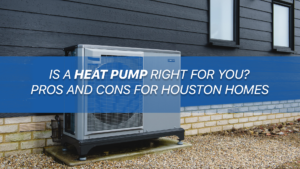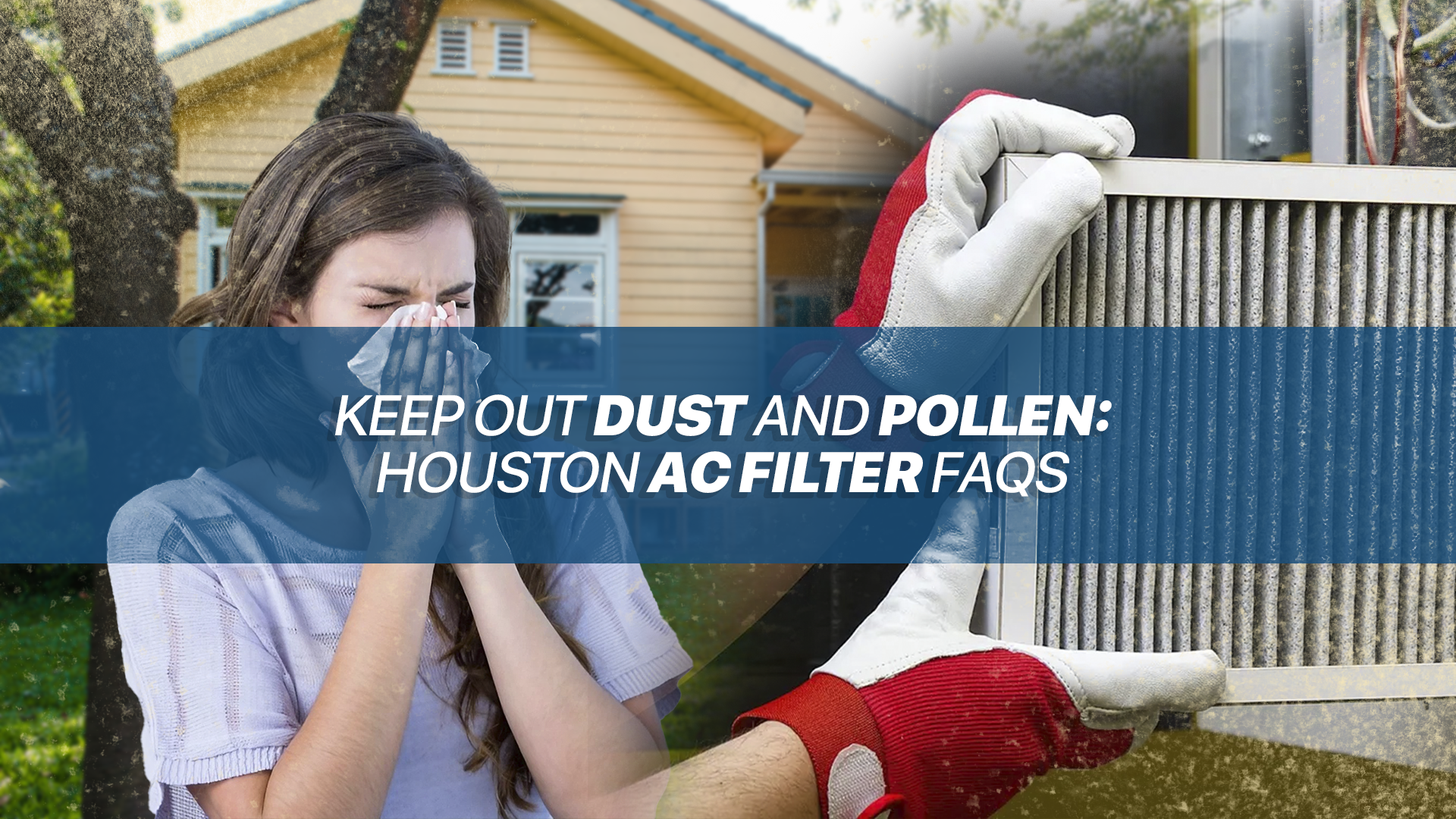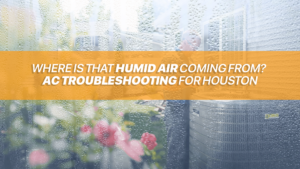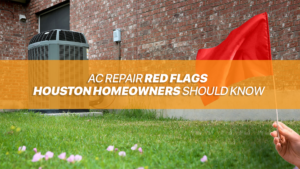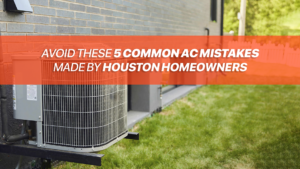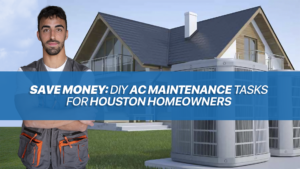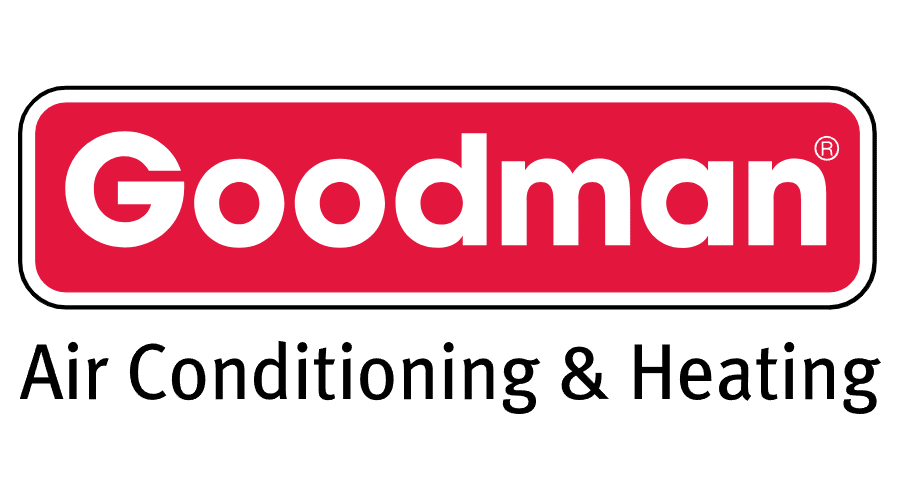The air conditioning filter is one of the most critical, yet often overlooked, components of your HVAC system. As a Houston homeowner, you need high-quality AC filters to keep out dust, pollen, and other allergens that are abundant in our area. Clogged, dirty filters force your AC system to work harder, wasting energy and potentially shortening its lifespan. Replacing or cleaning your filters regularly is essential preventative maintenance. But how often is enough? What filter rating do you need? And why does it matter anyway? This article will answer the most frequently asked questions about AC filters to help Houston homeowners optimize their systems.
Why Are AC Filters So Important for Houston Homes?
Houston’s hot and humid climate means most homes rely heavily on air conditioning during the summer. But our air is also filled with pollutants that you don’t want circulating indoors. Air conditioning filters are the gatekeepers they stop dust, pollen, mold spores, pet dander and more from getting inside your ductwork and making the air you breathe dirty. For people with allergies or asthma, high-efficiency AC filters are critical to remove outdoor triggers from the air. Reducing dust buildup also means you won’t have to dust as frequently. Ultimately, clean filters lead to better indoor air quality and fewer symptoms for sensitive individuals. Beyond health benefits, filters prevent dirt buildup inside your HVAC system. This debris can clog airways, damage components like the blower motor, and lead to mold growth. Replacing filters regularly keeps your system running smoothly for as long as possible.
How Often Should You Change AC Filters in Houston?
This is one of the most common air filter questions we get. Unfortunately, there’s no one-size-fits-all answer. How often you should replace your filter depends on several factors:
- Filter Type: Standard 1-inch fiberglass filters need changing monthly. Pleated filters can go 2-3 months. High-efficiency filters like 4-inch media filters or HEPA filters can go 4-6 months between changes.
- Home Size: Larger homes move more air and accumulate more dust and dirt, meaning more frequent filter changes. The filters in a 3,000 sq ft home need replacing more often than those in a 1,500 sq ft condo.
- Number of Pets: Furry friends mean more dander and hair floating around that will clog up your filter. Households with indoor pets should check filters at least every 2 months.
- Amount of Use: Homes that run their AC most of the day throughout Houston’s long summers put greater demand on their filters than those only using it occasionally. The more your system runs, the faster dirt will accumulate.
- Filtration Rating: Higher MERV ratings catch more particles, so they clog up faster. While a MERV 6 filter may only need a monthly change, a MERV 11 may need to be swapped every 1-2 months.
To keep your HVAC system running efficiently, check your filter every 30 days when your AC gets heavy use. If it looks dirty, go ahead and replace it. This prevents debris buildup and ensures you get the longest life from your air filters. Many modern systems also have pressure sensors that will turn on a warning light when airflow is restricted, reminding you it’s time to change the filter.
What MERV Rating Filter Is Best for Houston?
MERV stands for Minimum Efficiency Reporting Value, and it’s the standard measurement for air filter performance. The MERV scale goes from 1 to 16, with higher numbers capturing smaller particles. In Houston’s climate, a good minimum is a MERV 8 filter. This will trap pollen, mold spores, dust mites, and pet dander. MERV 11 is even better for allergy and asthma sufferers because it filters smaller particles like bacteria and smoke. While MERV 13+ filters promise superior filtration, they often aren’t recommended for residential systems. Such dense filters can restrict airflow too much for the fan motor, reducing its lifespan. When choosing a MERV rating, you want the highest performance filter that will work properly with your HVAC system. Be sure to check the manufacturer specs most residential units are designed for MERV 8-11. Upgrading to a higher MERV usually requires modifications like adding a larger blower motor. Work with an HVAC pro to determine the optimal filter rating that balances efficiency with proper airflow.
Should I Use Reusable or Disposable AC Filters?
Homeowners trying to save a little green on their energy bills often consider reusable, washable air filters. These may work in some cases, but disposable pleated filters are usually a better choice. Here’s why:
- Reusable filters can’t achieve the same MERV ratings as disposable media filters. Most are only MERV 6 or under.
- Over time, washing degrades the filter media so it doesn’t catch as many particles.
- Improper drying can allow mold or bacteria growth. Disposable filters don’t have this issue.
- While you save a little upfront, having to frequently wash reusable filters takes time and water. Pleated filters are more convenient.
- Remember, a clean filter protects your HVAC equipment. Investing a few extra dollars in a quality disposable filter will pay off in energy savings and system longevity.
If you do want to try washable filters, stick to the cheapest, low-efficiency fiberglass type. Only use them as a temporary measure, and replace them with pleated filters as soon as possible. Disposables are the best choice for most Houston homes.
Where Should I Place My AC Filter for Optimal Performance?
For maximum efficiency, your filter needs to be positioned in the return duct before air enters your HVAC system. The simple rule is to make sure all circulating air gets pulled through the filter before anything else. In many systems, that means installing the filter just inside the return air grille. Twist or slide it into the slot where it fits snugly. Air entering the duct will get filtered before moving further. For central air handlers and furnace systems, you’ll usually find a designated filter slot along the return duct path, often near the blower. Your installer can show you the ideal placement to catch all the air headed back to the unit. No matter where it’s located, make sure the filter size matches the filter rack and that it’s installed correctly. Position it so the arrow on the side points in the direction of airflow. This avoids leaks that let unfiltered air bypass the media. A snug fit ensures optimal performance.
Why Does My New AC Filter Turn Black So Quickly?
Seeing your clean filter turn dark after just a few weeks is common in Houston. You may worry your new filter is defective, but this black discoloration is normal. The dust cake that develops on filters is mostly made up of organic debris and lint. Houston’s humid environment makes these particles sticky, enabling them to adhere tightly to the filter fibers.
Under a microscope, you would see this grime is composed of things like:
- Pollen
- Mold spores
- Skin cells
- Pet dander
- Carpet fibers
- Clothing lint
The tiny particles clump together as they stick to the filter. Even though it looks black, it’s actually made up of various allergens and debris that otherwise would have circulated through your home! A dark filter means it’s working as intended to catch these contaminants. But make sure to change it on schedule, since airflow will become restricted as the dust cake thickens. A blackened filter is protecting your HVAC system, even if it looks dirty.
Where Can I Buy AC Filters in Houston?
The easiest place to purchase new HVAC filters is your local home improvement store. Brands like 3M Filtrete and Honeywell air filters are readily available at:
- Home Depot
- Lowe’s
- Menards
- Ace Hardware
Many grocery and warehouse stores like Kroger, HEB, Costco, Sam’s Club, and BJ’s also stock filters. You’ll typically find them in the HVAC or seasonal aisles. Of course, you can also order filters online from retailers like Amazon, Walmart, Target, and more. Purchasing through reputable sites ensures you get authentic filters that meet the advertised specs. For the best value on brand name filters, consider signing up for a filter subscription service. Companies like Second Nature and HVAC.com deliver replacements right to your door automatically. Subscriptions can save up to 15% off retail prices. If you need help matching your filter size or have questions about upgrading to a better MERV rating, contact a professional HVAC company. Many providers like Turbo Home Services sell filters tailored for your exact system. Their experts can recommend the ideal filtration solution.
How Can I Remember to Change the Filter Regularly?
Consistently swapping dirty filters for clean ones is crucial for your HVAC system. But it’s easy to let this maintenance task slip down the priority list. Here are some tips Houston homeowners count on to remember:
- Mark your calendar: Schedule filter changes like any other appointment. Set reminders on your phone calendar app or write it on your physical planner.
- Sign up for a subscription: Let a filter delivery service handle the reminders. You’ll get new filters shipped automatically on a schedule.
- Check it seasonally: Make it part of your routine spring and fall maintenance. For example, swap the filter when you turn off or on your AC for the season.
- Do it on payday: Link it to something else you do regularly, like checking your paystub.
- Inspect monthly: Get in the habit of quickly checking the filter each month as part of a bigger HVAC check.
- Follow the pressure light: Rely on the notification light that turns on when your filter is dirty. Don’t ignore it!
- Ask your HVAC company: Many providers offer maintenance plans with regular filter changes included.
Staying on top of replacing AC filters ensures your system runs as efficiently as possible. Don’t let dust and debris take a toll on your indoor comfort or energy bills.
When Should I Call a Professional for Help with AC Filters?
While DIY filter changes are straightforward, there are some situations when it pays to bring in the pros:
- If you need help matching your filter size/MERV rating
- When upgrading to a thicker media filter
- If you notice signs of improper airflow like reduced cooling, short cycling, or strange smells
- If you have an older home where the filter location is unknown
- For high-efficiency electronic air cleaners or UV filters
- If dust and allergens persist despite diligent filter changes
- If you are unable to change it yourself due to physical limitations
The HVAC experts at Turbo Home Services have extensive experience with all types of filtration systems. We carry a full stock of filters to match your exact needs. Our technicians will ensure it’s installed in the optimal location to catch airborne particles. We also offer maintenance plans that include regular filter changes by our team. Skip the hassle and let us handle this critical task on schedule. Investing in professional filtration services helps your system run cleanly and efficiently. Breathe easier by keeping up with your AC filter changes. Contact the team at Turbo Home Services in Houston at (281) 626-5938 to upgrade your filters and optimize your HVAC system. Our air quality solutions will trap dust and allergens, allowing you to enjoy cleaner indoor comfort.
